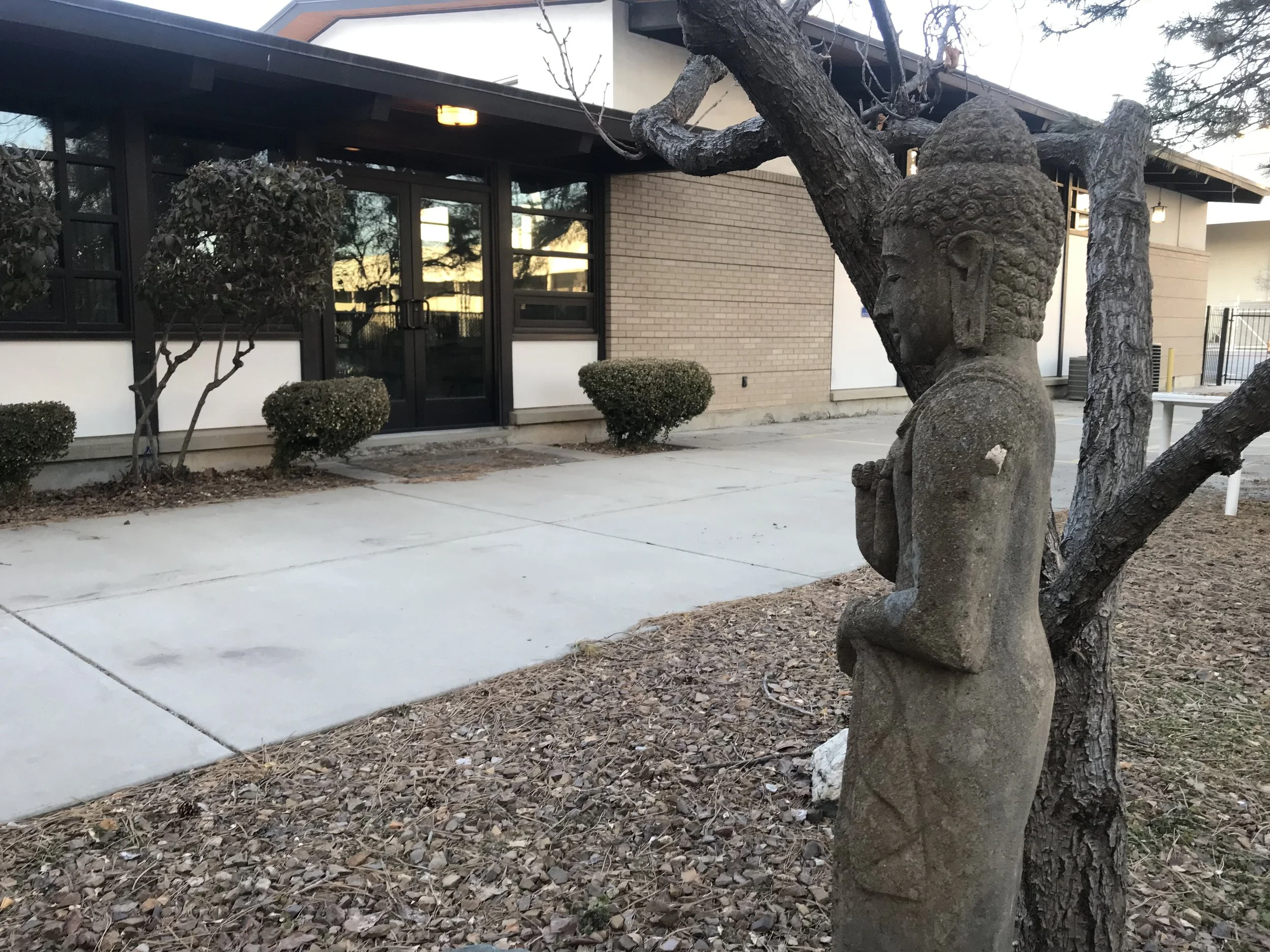Women in Buddhism
Rev. J.K. Hirano
Pure Land Buddhism traditionally emphasizes the way of life in each era. That is to say, the teachings of Amida Buddha’s Primal Vow must be translated into the emerging context of each new age. We see this process in the writings of Shinran Shonin…Shinran’s successors have also striven to interpret the teachings for their times…Even in Japan at present, the concrete expressions of Buddhist truth.. need to be translated and adapted to the contemporary context.
Koshin Ohtani (Zenmon of Jodo Shinshu Hongwanji Ha)
When Carmela and I were first married, she asked me what does “Okusan” mean? Because members of the temple, especially the older members would call her “Okusan”. I explained it meant “woman behind the man”. She asked me, “What do you call a woman in front of the man? I gave her a one-word explanation, “Jama” (Obstacle). Of course, I was joking, it is a very obvious realization that without women, there would be no man.
If there were no women, there would be no life. I believe that the reason women were excluded from much of our Buddhist religious tradition is because the birth of children was an extremely difficult task. Although there are exceptions it is only within the last 100 years or so, that science has allowed women to go beyond their biological role as Mothers. Although not all women must be mothers. It was the standard for most societies in the past.
While men may be listed historically as the leaders or founders of our Jodo Shinshu Hongwanji Ha tradition. We are now in the position to bring the women listed behind the men (Okusan) to the forefront where they belong. For there would be no Shinran without the influence of both Eshinni his wife and their daughter Kakushinni. In fact, in some ways, they were ahead of their time. Eshinni was the bread winner, that allowed Shinran to study, teach and write. It was his daughter Kakushinni who was the land owner that Hongwanji was founded on. The human qualities I find in Rennyo are the result of his own experience with women, such as his mother and daughter Kengyoku ni.
Rennyo focused his teachings on the local village leaders and the women. This is what allowed Jodo Shinshu Hongwanji Ha to become the dominant religion in Japan and even to the present day. How many religious sects can claim 800 years. When Rennyo took over as the “Rusushiki” of Hongwanji, it was not a very large temple. However, by the time he died, Hongwanji was one of the most powerful religious institutions in Japan. This was the result of his five wives and twenty-seven children. No, he was not a polygamist. He outlived his first four wives. I don’t want to get into the details, but suffice it to say, Rennyo Shonin’s creation of Hongwanji as the religious institution for 800 years, can be attributed to the women in his life.
Recently there have been several movies where the women have become the assassins and secret agents. The two movies I am thinking of are “Mother” with Jennifer Lopez as an assassin and “Heart of Stone” with Gal Gadot as secret agent. By the way, I think she is just as good as 007. Although the need for women to come to the forefront is long past due. We should be reminded what happened when Hillary Clinton lost the presidential election. I hope that I will see a woman president in my lifetime. I do believe that it is about time. However, my personal feelings have always been that women are stronger than men in so many ways. I just hope that when women come to the fore, they will not mimic the men who have brought us to this point.
We have been training Ministers’ Assistants and Ministers over the past few years and to be very honest, the women have by and large been better than most of the men. We have also had several women, that could easily become the future Bishop. Although, there is still a great imbalance between the number of men applying for those positions, could they just be smarter?
Carmela and I have three daughters. I have always wanted daughters more than sons. However, as I have spoken of in the past, when my daughters were born, it was a mixed reaction of great joy and fear. The fear was the world I had brought them into wasn’t in the greatest shape and I didn’t know what the future had in store. I am glad that we are coming into the age of women. Maybe there is hope for the future. Namo Amida Butsu
